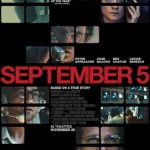
Don’t be afraid of the run time. Brady Corbet’s directing, the story, casting and performances are flawless and worth every minute. This low budget, high concept film runs 3 and a half hours with a 15 minute intermission. Adrien Brody gives his best performance since The Pianist, bolstered by a fierce Guy Pearce, fragile Felicity Jones, and intense Alessandro Nivola.
Corbet and co-writer Mona Fastvold (his wife) create a completely compelling narrative of a fictional genius architect that seems so real, we almost anticipated a post-script that saying the movie was based on real events. To recreate the films of the era, Corbet and Cinematographer, Lol Crawley, shot on 70 mm film in Black and White. This, along with the fine detail give this film as bold and distinctive a look as the School of Brutalist Architecture from which the film takes its name. And Jewish musician Daniel Blumberg, member of the band Yuck, provides the haunting soundtrack and even some World War II era jazz during the 15 minute intermission. We saw the film with a packed house at Austin Film Festival in October.
The main character, Hungarian genius architect, László Tóth, (Brody) is a Jew who barely escaped war-torn Europe to find a new life for he and his wife, Erzsébet (Felicity Jones). However, they are still separated post Holocaust. Brody is remarkable and nails the Hungarian accent as newly arrived immigrant Toth, ready to start a new life in America.
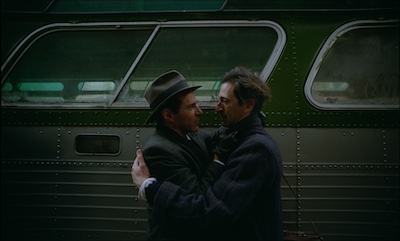
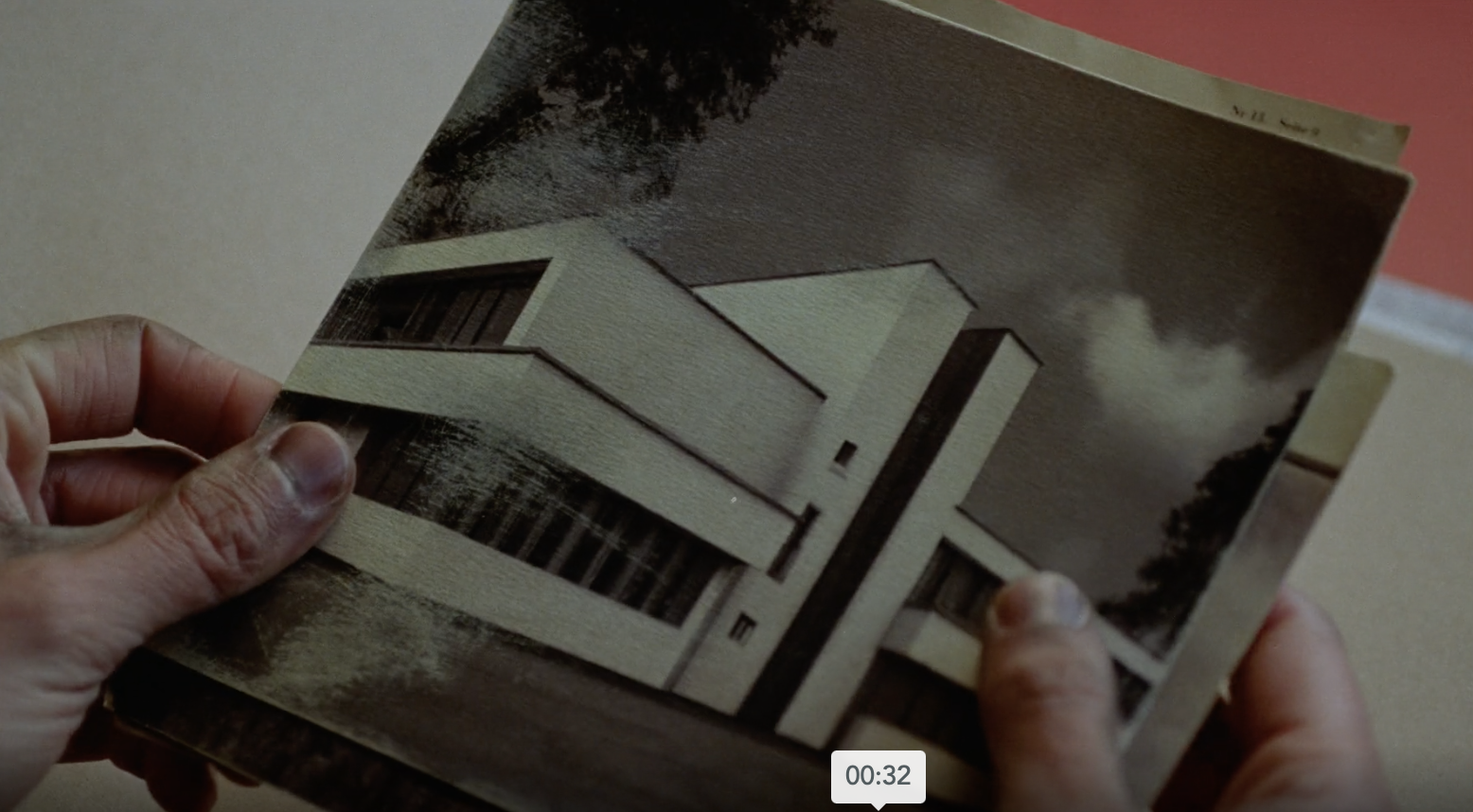
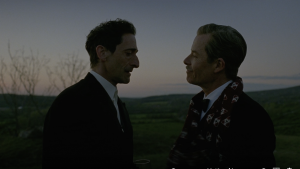
Brody couldn’t be more right for this role, as his maternal grandmother, a Czech Jew, survived the Holocaust by hiding. Brody’s mother, talented photographer, Sylvia Plachy, worked for the Village Voice for many years. She was born in Budapest, raised Catholic and fled to the U.S. in 1956 during the Hungarian Revolution. This film somewhat mirrors his mother’s family history. And Brody studied his grandfather’s accent for this role. There is even a scene in the film where Brody as Toth participates in an authentic Yom Kippur service in a Synagogue.
It’s 1947, when Toth lands on the doorstep of the furniture store his cousin, Attila (Alessandro Nivola – The Room Next Door) owns. Attila says he’s happy to help him get started, but harbors jealousy at his cousin’s renown as a brilliant architect in the old country. Atilla eventually turns on Toth and forced him out of his house and job. Lazlo meets and is hired by a wealthy industrialist’s son, Harry Lee, (Joe Alwyn) who hires the architect to build an ingenious mechanical library as a surprise gift for his father Harrison (Guy Pearce). When his father first sees the amazing configuration, he explodes, berating his son and the project. But once he realizes what a unique structure it is, and discovers Toth’s past fame, he contracts him to build a huge structure of his dreams that would stand as his monument. It’s just not one you’d expect to be constructed by a Jew.
The relationship between Toth and Harrison begins to change because of festering anti-semitism, with mounting costs and the architect’s refusal to change his designs To save costs. Toth is driven to excel and is intolerant of anyone who can’t appreciate his brilliance nor follow his instructions.
Harrison Lee (Guy Pearce) is a product of the times. He can be charming, accepting and encouraging and then turn to become a hateful, domineering monster the next minute. His money isn’t buying him the happiness he demands. Pearce is a giant in this film. He delivers a dynamic performance playing a man in charge who knows exactly what he wants and how to get it.
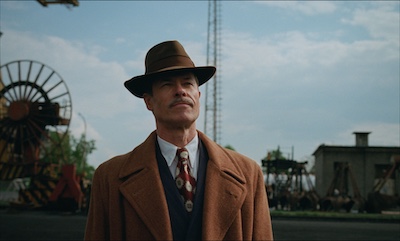
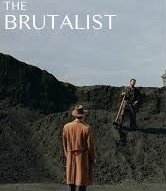
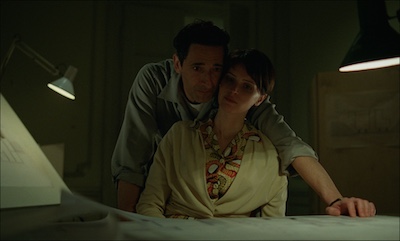
In the course of this project and others, Harrison helps Toth bring his wife Erzsébet, (Felicity Jones – On the Basis of Sex), stranded in Europe, to America along with her orphaned mute cousin, Zsofia (Raffey Cassidy-Vox Lux, White Noise). His wife arrives, confined to a wheelchair, the result of inhumane treatment she suffered during the war. Life becomes more complicated for all of them. The relationship is strained and Toth and his wife struggle to reconnect their love for each other.
Erzsébet is the truth teller in this story. She sees Harrison for what he really is urging Toth to get away from him, but he can’t. Toth is intoxicated by the process and power of his project, refusing to leave it, which leads to extreme friction. The magnate finally fires Toth.
Corbet turns the film on end with a shocking scene when Toth and Lee meet again that will leave you aghast. This 3 and half hour film flies by, touching on immigration, war, anti-semitism, aggression, jealousy, and even homosexuality. Corbet directs the exceptional Brody, Pearce and Jones in this taut, solidly built story, epic in its reach. Not to be missed.
A24 3 hours 35 minutes R









